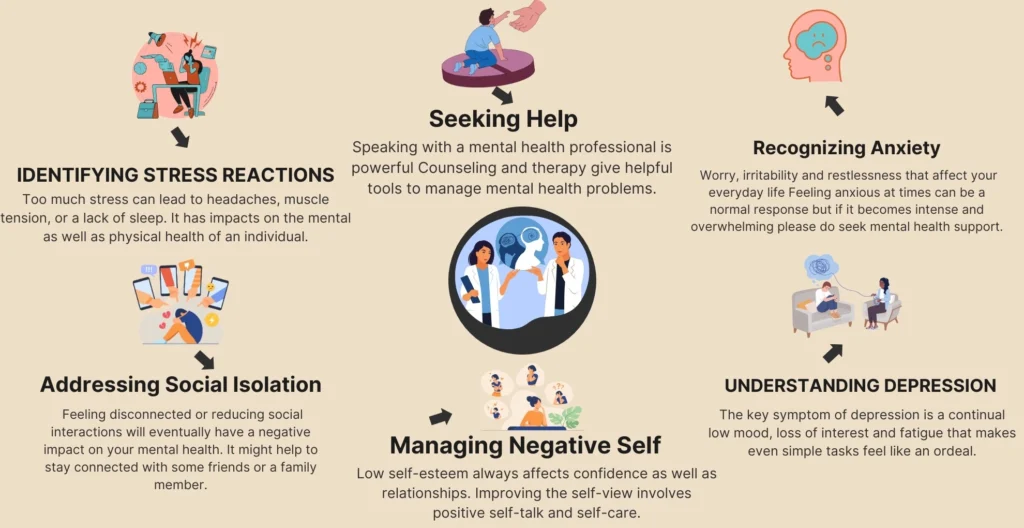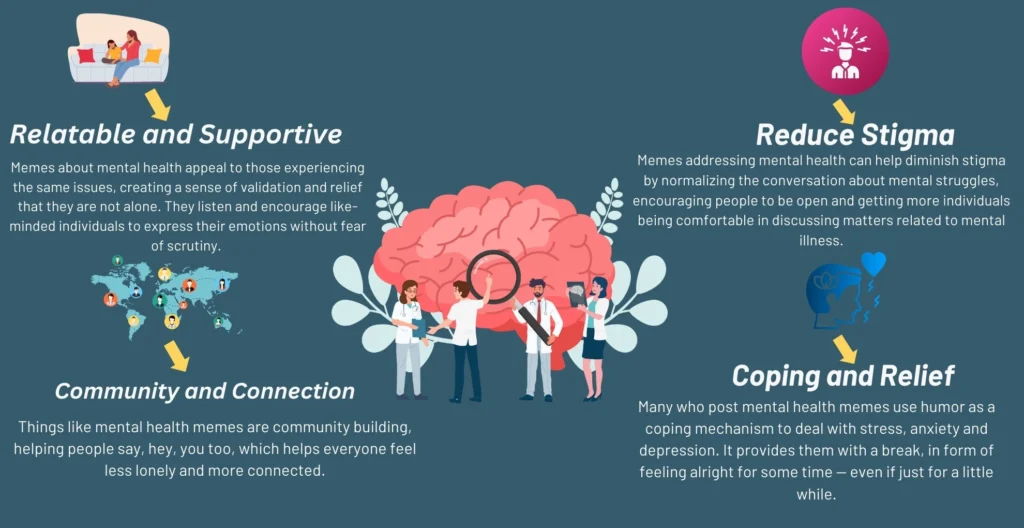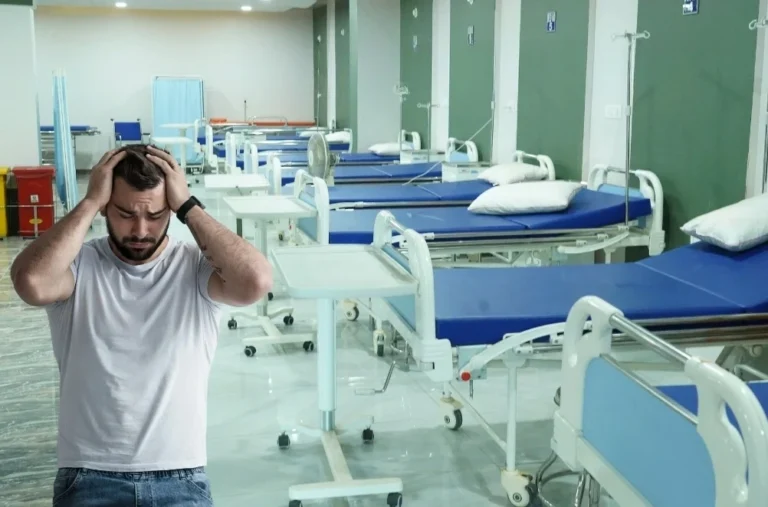The mental health consists of emotional, psychological and social well being. Discover definitions, common conditions, early warning signs, even how to cope and get better Life is full of challenges, decisions that we have to make every day with changes everywhere that it is easy for many of us to lose our mental stability.
But the first step is to realize that getting mentally well is important for general happiness and productivity. In this post, you will find simple and practical tips that you can easily implement in your daily life to raise your mental well-being. From identifying the most prevalent mental health problems to knowing when to contact a mental health professional, this guide will help you on your journey toward better mental health and be with you every step of the way.
Awareness of usual mental health problems
In today’s time most of the people suffer from mental health problems called stress or anxiety, overwhelmed feeling.

The importance of recognizing these feelings early is so that you gain power, and can sort through the clutter yourself rather than letting it overwhelm. Creating awareness is the first step in finding solutions to these issues and with overcoming your poor mental health.
Importance of Awareness
Recognizing Mental health issues and their impact on yourself and others is a key step in managing those problems. Being aware helps you overcome these hurdles. This entails finding opportunities to volunteer in mental health programs, the aim being to raise awareness and support those who need it. It raises awareness that plays a significant role in breaking the stigma of mental health so important, it leads to open discussions among people and builds up the support system.
Teenage Mental Health: A Resilience and Growth Narrative
Mental Health Troubles: Teenage years can be difficult time for mental health, full of a lot of changes and stress. Cause: Adolescents deal with all kinds of new challenges such as school pressure, teenage dramas, and self-discovery. Listening to the experiences of your peers who have gone through similar circumstances may serve as a source of motivation and solace.
For instance, one trend focuses on teens and tweens who have struggled with anxiety along with balancing school and sports. They have found therapy and mindfulness helpful coping strategies. Another story features a teen who experienced — and battled with — Feelings of isolation, body image issues, both of which popped up early on in her life; but she found community online along with an escape in the form of art and writing. These tales of determination teach us that getting help is the answer when confronted with mental health issues, and working on bettering ourselves in our own way gives birth to strength and progress.
Positive Mental Health Quotes
Quotes remind us every day to be positive, change our mind-sets towards mental wellness.
- Mental health is a journey, not a destination. Where the journey leads is irrelevant; how you get there matters. – Noam Shpancer
- You can be happy, even in the darkest hour., if only you could remember to turn on the light. – J.K. Rowling
- “Your start — is where you are now, but your current situation — does not dictate where you can go. – Nido Qubein
- You yourself, as much as anybody in the entire universe, deserve your love and affection. – Buddha
- Where mental health needs is more light, more transparency and less shame.” – Glenn Close
These quotes remind us that mental health is a journey, where self-love and vulnerability are critical. Accept them as the means to strengthen your resilience and grow positive thoughts in your daily life.
Journaling Prompts for Mental Health
Journaling is extremely effective when it comes to mental health, giving you a space to express feelings, sift through thoughts and be on your own.[3] To expand your exploration of you determinedness and get things started to clearing your head, here are some journaling suggestions:
- Day trees: What are three things you are grateful for today? And why?
- Checking In With Your Emotions: How Do You Feel? What unfolds in your mind as you become aware of the feeling, and what may have led to it?
- The Heavy Lifting: What are the biggest stressors you have in your life right now? What can you do to tackle or ease them?
- Self-Kindness: Write about a time you messed up recently. How can you treat yourself gently and with compassion?
- Looking ahead: Where do you see yourself next year? How do I get there from here?
- Personal Strengths: Identify your strengths and how you can use them to overcome the challenges that you face.
- Happy Memories: Think of a happy / positive memory Then ask yourself, what made it special and how can you reproduce those kinds of experiences on a go forward basis?
- Setting up boundaries and self-care: Do you have few things in your life where a stronger boundary is required? Where does self-care fit into that process?
- Mindfulness Moment: What was a moment today that you were fully present? Where were you and how did it feel?
- Personal Development: What is the most-recent experience or conversation that caused you to learn something new about yourself?
Regularly using these prompts can reveal time and flow patterns, inspire psychological growth, and increase wellness.
Daily Advice on Managing Mental Health
Mental health is affected mentally positively with simple practices used in daily routine. Here are a few tips that you can go directly to do:
Practice Mindfulness
In Stress reduction and mental well being, mindfulness is one of the most proven tools. That means living in the moment and engaging with your surroundings. Begin with some basic breathing exercises, tuning into your senses or thanking the universe. For example, spend a couple of minutes every day shut your eyes and simply breathe to clear your thoughts. Mindfulness exercises help you relax and focus, which can be greatly beneficial to both your Mental health and physical activity.

Set Healthy Boundaries
Taking care of your mental health by creating healthy boundaries That might mean saying “no” to additional assignments if you are already stretched thin, setting boundaries on technology use and putting your health first. Boundaries help you pay attention to what matters, and avoid zoning out of the mental health world and burning out. Just keep in mind — your health, Emotional and mental well-being comes first; and boundaries are there to help you manage this crazy busy lifestyle whilst being sane.
Engage in Physical Activity
Exercise is proven to help your mental well being. Exercise helps with production and release of endorphins, which are natural mood balancers. A short stroll, stretches, or even just a song on your favorite content can help lift your mood and improve mental health. One is to perform mental health yoga or other mental health exercises which would make you feel more energy and active during the day.
Limit Negative Self-Talk
Your inner dialogue plays a major role in your mental well-being. Having negative thoughts can cause mental Health issues and having positive self-talk can increase your confidence and overall well-being. Be gentle in reframing your thoughts. Inspire yourself to be hopeful and acknowledge your skills and accomplishments. And, this change in perception can greatly enhance your mind wellness.
How Family Affects Teenagers Mental Health

The role of family in the mental health of a teenager is crucial because it is the first and most influential support system. A supportive family life gives them the security and confidence, a very strong emotional muscle they are going to need as they navigate all of life challenges through teenage years.
Teenagers should never feel restrained in the family zone to share what they think and how they feel, which is why open communication creates a roof of confidence that everyone feel respected. Conversely, a home characterized by tension or violence where family support is limited can instill negative feelings of Anxiety or Depression.
Families must meet the challenge of being present for their teens while working with them towards independence. Providing a positive and nurturing atmosphere will enable teenagers to cope with stress and build resilience, which is important in order for them to eventually grow into healthy adults and here a 10 pointe for How Family Affects Teenagers Mental Health
- Levels of Quality Communication: When families communicate openly and honestly, they create an environment that fosters love and support in which teens can discuss their feelings or concerns, which are both important for mental health.
- Emotional support: Families that provide emotional support help teens develop resilience and coping mechanisms which can lower the risk for anxiety and depression.
- Family Structure: Good family dynamics, build on respect and understanding will provide a good environment to keep your mental health at check.Conversely, dysfunctional family dynamics can cause everyone to feel anxious and angry
- Parental Involvement: Having involved positive parents promotes self-worth and stability in teens, while the opposite can make them feel abandoned.
- Conflict Resolution: Families that practice healthy conflict resolution demonstrate to adolescents how to manage conflicts in a constructive manner, therefore decreasing tension and emotional anguish.
- Effect of Stress in the Family: Significant stress in a family, such as money problems or conflict between parents, can make a youngster feel worse about himself and can also make him more anxious and much poorer able to control his feelings
- Exemplification: Parents who exemplify positive habits and coping mechanisms equip adolescents with a model on how to cope with mental health struggles themselves.
- Stable environment: teenagers need some sort of stability or routine and a firm base allows them to understand what can be expected throughout their day/week.
- For instance: putting family and cultural expectations over the pressure for a specific time frame or ideal to be the person everyone is counting on can trigger stress and low self-esteem causing mental instability.
- Family Support Individual Identity: Families that help teens find their identity and encourage individuality can increase self-confidence and mental health.
Mental Health Memes
Enter the digital trend of mental health memes which serve a brilliant juxtaposition of lighthearted humor and honest discussion about mental health issues. These memes generally use relatable and often amusing pictures and phrases to emphasize the common day stresses of mental health.

They provide a safe platform for people to talk about mental health issues fighting stigmas and re-contextualizing conversations around anxiety, depression, Self-care and therapy. Mental health memes are relatable, and this puts them directly in the path of many — invitations to say “That’s so me!” or creating a bond with each other. They act as emotional sustenance, providing a reminder to the individual that they are not alone in their struggles by coupling humor with empathy.
Identifying When to Call the Experts
In some instances, self-care or just taking care of mental health is not enough and you need therapy. Knowing when to reach out is critical for your wellbeing.
Warning Signs You May Need More Assistance
Sometimes, mental health disorders need to be treated by professionals.If the sadness continues, if it is difficult to cope with or ongoing anxiety, you need help.
. Your mental health is top priority, and the moment you realize that you might be fighting a battle — even if it’s just with your mind — that is okay too.
Encouragement to Seek Help
Strength, not weakness, If you need help do the same as I did — just reach out. That is why mental health counselors and therapists are available to help provide you with the support needed when overcoming challenges. Keep in mind that going for help is a positive action towardsbetter mental healthand good being.
Encouraging Self-Compassion
And that is the truth: in order to keep a healthy mental state, we must be self compassionate. Self-compassion builds resilience and is healing.
Why is it Important to be Self-Compassionate
Self-compassion gives you the space to witness your imperfections impartially. It reminds you to be as compassionate and understanding toward yourself, as you would with a friend. This change in mindset can do wonders for your mental health and even how you process the ups and downs of life.

How to practice Self Compassion
Implement routines such as journaling, taking breaks to relax, and rewarding small accomplishments. Recognising and rewarding yourself will allow you to build up the confidence in your self-image and good mental health.
mental health for teens stories
Story 1: Emma’S Journey To Overcoming Anxiety
Emma had always been a straight-A student, but the need to succeed began to affect her mental well being.Anxiety took over her studies and social life.
The changes spurred her family into action. With the aid of frank discussions and therapy, Emma discovered coping mechanisms and approaches to mitigate her anxiety. Emma’s parents understood this and began providing her with the necessary support which, over time, brought Emma back to a place of confidence.
Story 2: Jake Finds His Voice
It has been a whirlwind of emotions, one day we felt this insurmountable strength and positivity, the next day Jake was down and depressed. Being in a room full of people, yet still feeling utterly alone.
His family not knowing what struggles he went through behind closed doors would often say to him ‘cheer up.’ During a serious conversation with his sister, Jake finally expressed how he felt.
. To help him find his way, she urged him to go into therapy and helped him break the news of his struggles to their parents. However, with professional help and a great family in his corner, Jake slowly began to grasp what depression really was, work through it and ultimately find his voice (and value) as he started to heal.
Story 3: Aisha’s story of overcoming family expectations
Aisha had learned to hide her feelings always, she bore the burden of her family settling their hopes on her. While everyone wanted her to choose medicine as a career, art had been her passion. Aisha also felt under immense stress and pressure, terrified of failing them so she kept her dreams private every single day. She finally opened up to her art teacher, who suggested that she simply tell her family what she wanted to do. Her teacher encouraged her, and Aisha persevered to express her aspirations, with conversation difficult nonetheless; slowly the family opened up to backing Aisha on an artistic path as well, enabling the budding artist to flourish mentally and creatively.
Story 4: Carlos Grows Into Himself
Raised in a traditional home, Carlos felt conflicted and furtively discovered his sexual identity while being secretive as to not upset his family. He suffered greatly from this inner turmoil.
. At school, he sought refuge in a support group and those who had similar experiences. Carlos found the courage to open up with his family because of their stories and acceptance. The first conversation was rocky, but his family eventually rallied behind him, offering the love and support he felt he was missing. Carlos began to live Truly, and his mind became a lot more stable than before.
Story 5:Maya Learns Resilience Story
Maya experienced bullying at school, which had a devastating impact on her self-confidence and mental health.Her family, she felt ashamed, humiliated and powerless
Her parents sensed something was troubling her, and navigated with an intervention, asking her what the matter was. Lucky for Maya, her parents encouraged therapy for her, and she learned resiliency strategies. Maya found the confidence to overcome her bullies, transforming her struggles into strength, because she was given a home reflected by family support and relationships where they believed in her and at therapy learned skills.
Each of these stories sheds light on the various struggles teenagers experience with their mental health, emphasizing why it is so important to have a family who communicates openly and making sure that they take that stride to get help when necessary.
Wishing Wellness & Raising Awareness About Mental Health

It is important to raise awareness about mental health so that we can break the stigma around it and start building an understanding community.
Raising Awareness about Mental Health
We need to have a good grasp of the mental health epidemic if we want to equip ourselves with the empathy and insight needed to build an informed society. Awareness leads to the reduction of stigma attached to mental health and helps create an environment where a person finds it easy to seek help.
Ways In Which Readers Can Raise Awareness
You can also help spread awareness by engaging in an open dialogue, providing resources or supporting your friends/family. Simply reminding others to take care of themselves & offering an listening ear can go a long way.
Encouraging Others
That is why it is so important to be supportive and empathetic to someone who may be struggling. Even a small kindness or our ears can have big impacts on another person’s mind and heart.
Conclusion
If followed regularly can help you to enhance your mental health. Whether it be mindfulness, incorporating boundaries, exercise or a support system, every step is an addition to your better life. Just a friendly reminder that mental health is not a sprint, but a marathon — and always feel free to reach out for professional help.
Which tip will you try first? Let us know in the comments what your experiences were. Sharing your experiences might encourage others on their own mental health paths. By sharing our stories, we can build a community of caring people — who care about mental health!

